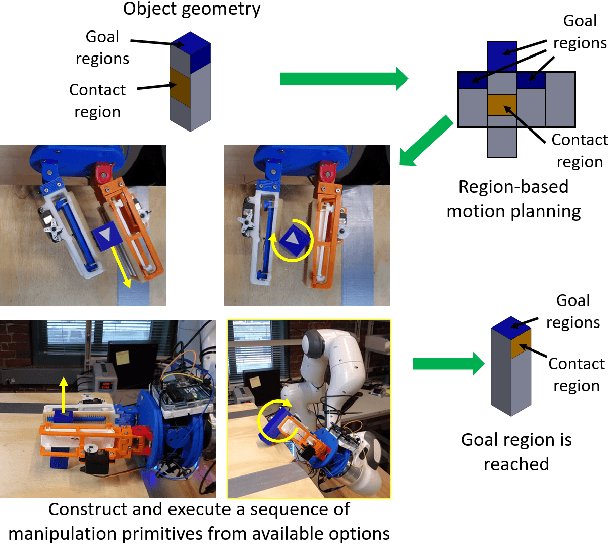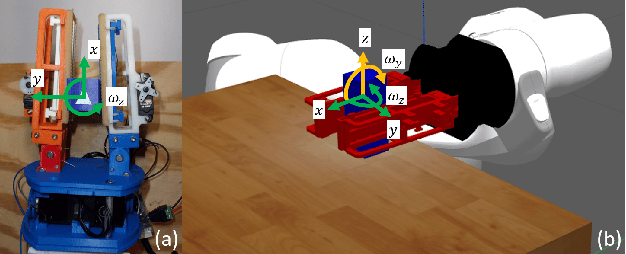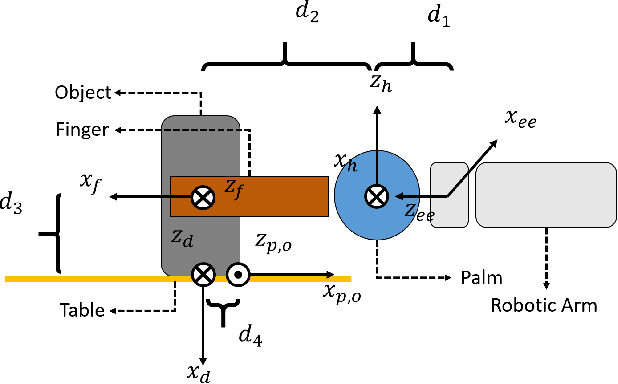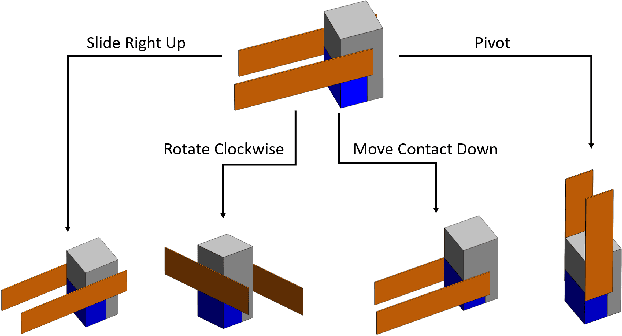Region-Based Planning for 3D Within-Hand-Manipulation via Variable Friction Robot Fingers and Extrinsic Contacts
Paper and Code
Nov 13, 2020



Attempts to achieve robotic Within-Hand-Manipulation (WIHM) generally utilize either high-DOF robotic hands with elaborate sensing apparatus or multi-arm robotic systems. In prior work we presented a simple robot hand with variable friction robot fingers, which allow a low-complexity approach to within-hand object translation and rotation, though this manipulation was limited to planar actions. In this work we extend the capabilities of this system to 3D manipulation with a novel region-based WIHM planning algorithm and utilizing extrinsic contacts. The ability to modulate finger friction enhances extrinsic dexterity for three-dimensional WIHM, and allows us to operate in the quasi-static level. The region-based planner automatically generates 3D manipulation sequences with a modified A* formulation that navigates the contact regions between the fingers and the object surface to reach desired regions. Central to this method is a set of object-motion primitives (i.e. within-hand sliding, rotation and pivoting), which can easily be achieved via changing contact friction. A wide range of goal regions can be achieved via this approach, which is demonstrated via real robot experiments following a standardized in-hand manipulation benchmarking protocol.
 Add to Chrome
Add to Chrome Add to Firefox
Add to Firefox Add to Edge
Add to Edge